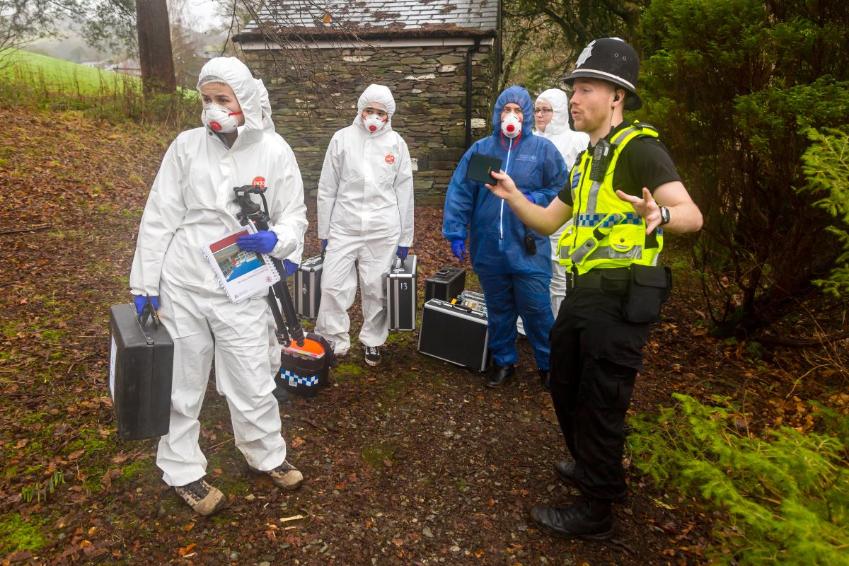BSc (Hons) - Criminology and Forensic Investigation (Integrated Foundation Year)
Embark on a thrilling journey with our BSc (Hons) Criminology and Forensic Investigation programme! Dive into the heart of crime and justice as you combine criminology and forensic investigation, gaining the expertise needed for real-world impact. Uncover the causes and consequences of crime, master crime scene investigation, and refine skills sought in areas like victim support and probation.
With hands-on experience and access to cutting-edge equipment, you'll be primed to lead and innovate in the criminal justice field. From immersive simulations to expert-led research, every step prepares you for a dynamic career making a difference.
Join us and evolve into a multi-skilled, ethical practitioner ready to tackle the challenges of tomorrow!

Course Overview
Our integrated foundation year course has been designed to provide you with the confidence and essential university skills needed to progress onto our degree level programme in your first year of study.
You will start by exploring the foundational principles of criminology and forensic investigation recognising where each discipline compliments the other to support event analysis through the criminal justice system. Exploring the reasons for crime, investigating incidents and presenting evidence you will refine forensic skills and digital tools for evidence, evaluation and presentation.
Evolving into a multi-skilled practitioner, conducting independent research and presenting expert evidence you will be ready to become a change maker in the Criminal Justice System. Throughout your journey we will support you to develop digital research capabilities and ethical awareness preparing you for diverse professional careers.
The range of skills you will gain and the ability to bridge many aspects of Criminal justice Practice will ensure you stand out amongst candidates for future employment.
On this course you will...
- Gain the knowledge and confidence to operate as a multi-skilled and ethical criminal justice practitioner.
- Learn to critically apply key elements of criminological theory, forensic principles, and research to a range of practical and professional contexts in a digitally developing world.
- Be able to develop creative, innovative, and critical approaches to provide solutions, generate ideas, and communicate issues aligned with criminological and forensic practice.
- Be able to perform techniques involved in crime scene investigation whilst operating within a quality management system.
- Engage critically with contemporary social problems, recognising systemic and cultural discrimination, social inequalities and how these issues interact with crime, deviance, and harm locally, nationally and globally.
Location
Carlisle - Fusehill Street Campus
The Fusehill Street campus has been the setting of life-saving treatments since World War I. Now, it's home to world changers, life-savers, crime fighters, and entrepreneurs with access to high-quality facilities and innovative thinking.
Find out more
Find out more about studying with us
Attend an Open Day at Cumbria
An Open Day is your opportunity to explore one of 5 campuses, meet your lecturers, and find out how the University of Cumbria could become your new home.





